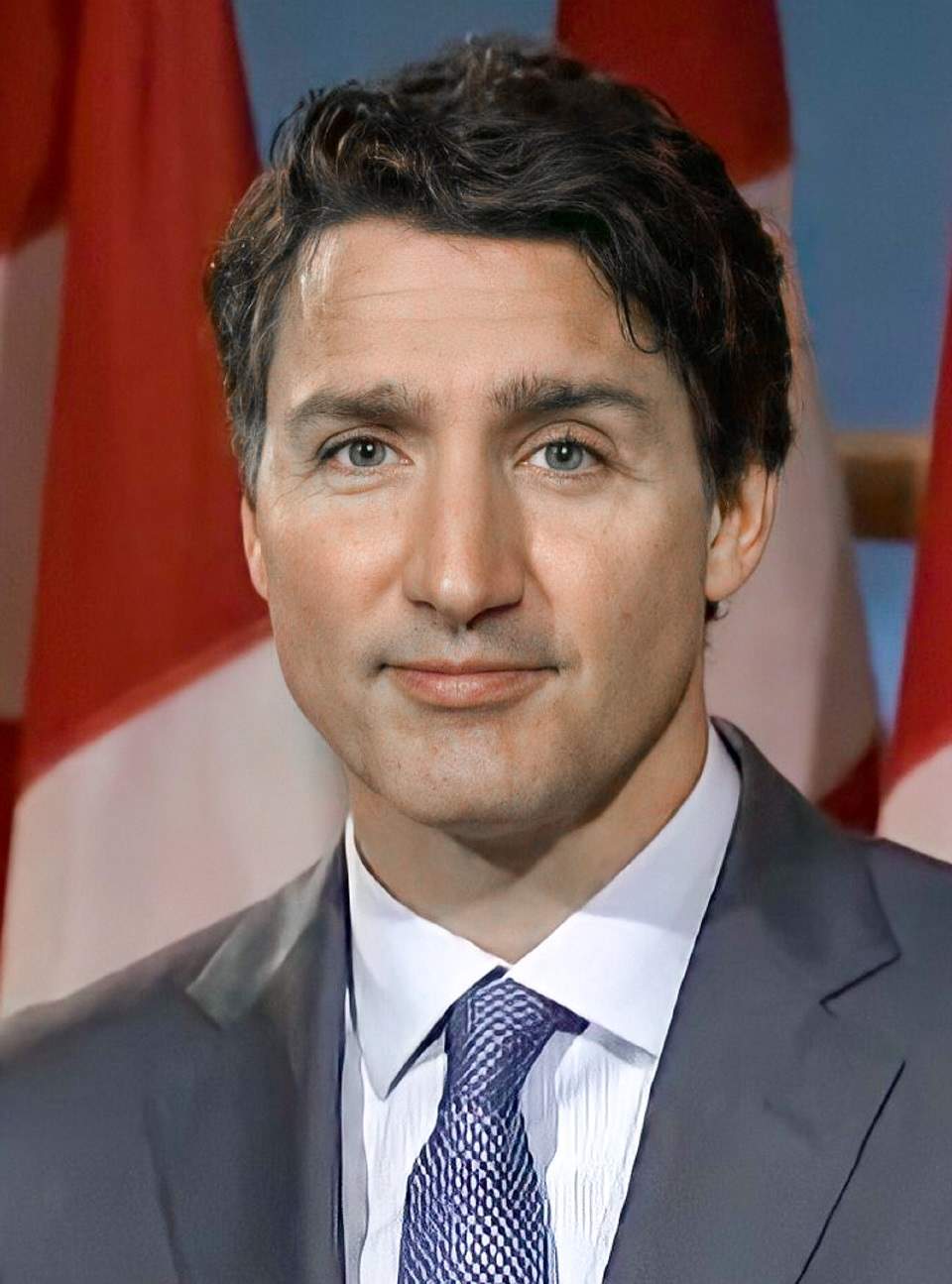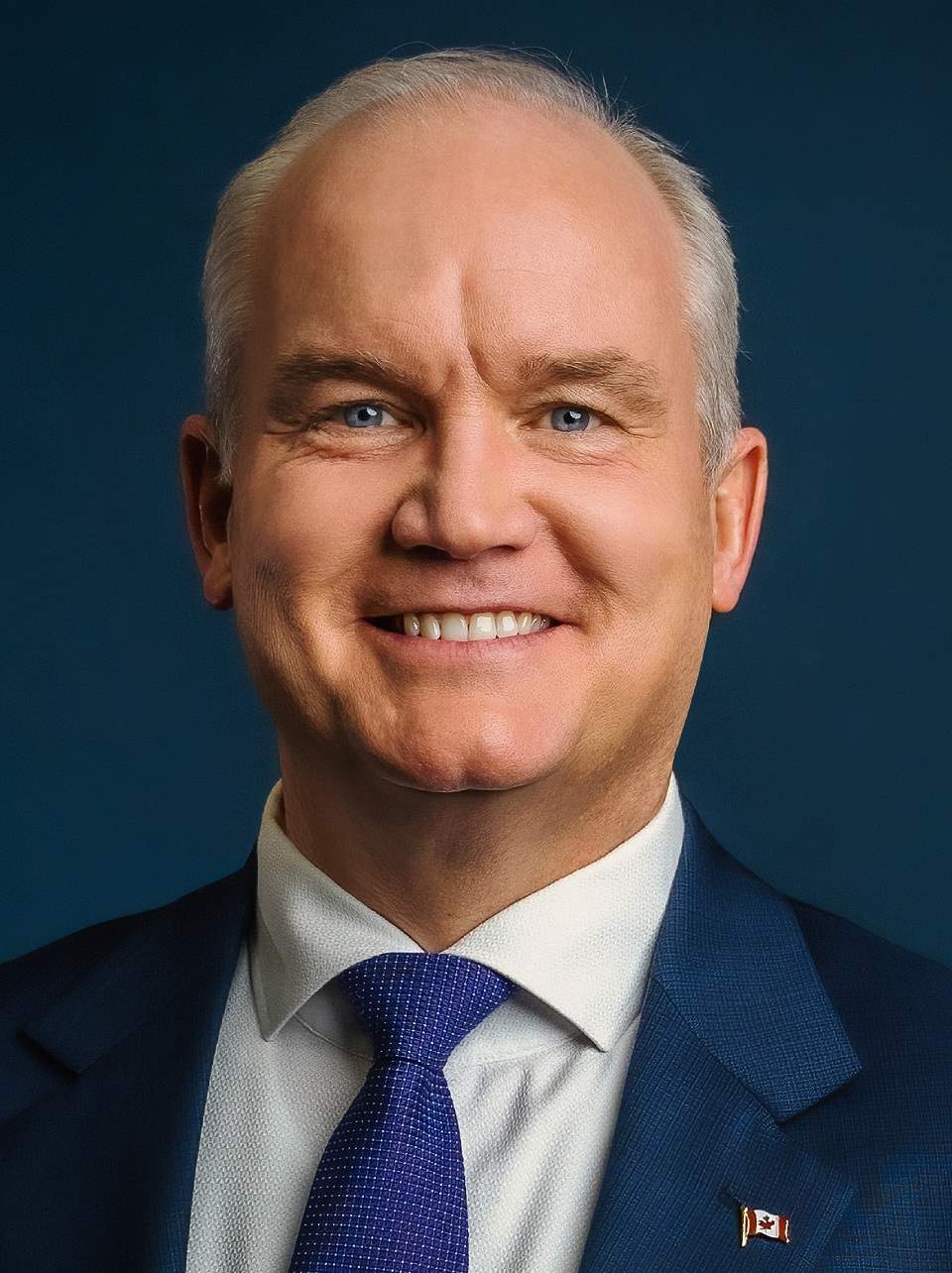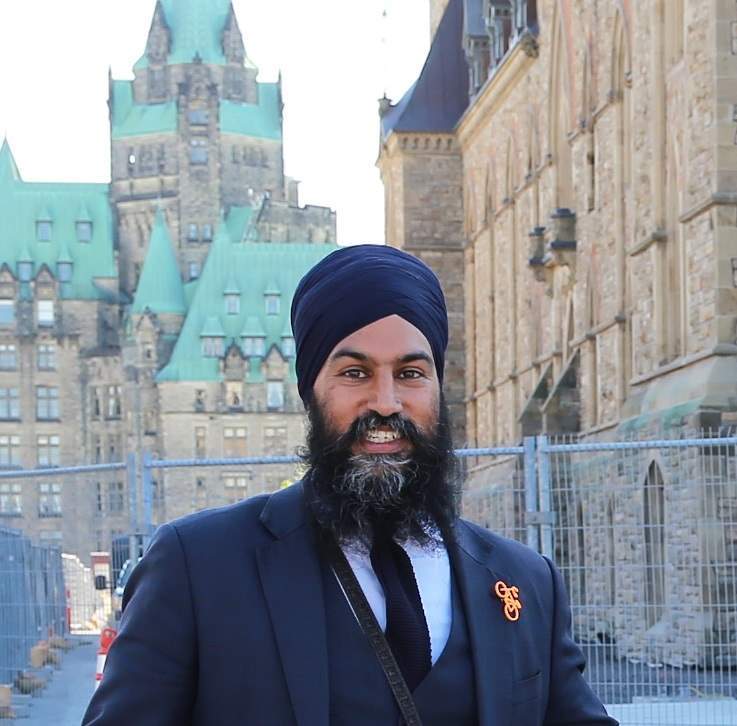Our country is one with excellent relations with a plethora of states and entities throughout the international community. Countries on every continent and rival players in different conflicts all confide in Jordan — a legacy built by the pursuant diplomacy of the late King Hussein and His Majesty King Abdullah. At the same time, Jordan’s small size, lack of resources, and its location in such a volatile region put it in a precarious position, one in which forging ties across the oceans is necessary for the Kingdom’s peace and prosperity. Thus, the internal affairs of faraway nations could affect Jordan. Of course, when we think of national elections with global ramifications, our thoughts bring us to the United States, yet its larger and more even-handed northern neighbor also has a role to play in Jordan.
اضافة اعلان
 Canadian
Prime Minister Justin Trudeau. (Photo: Wikimedia Commons)
Canadian
Prime Minister Justin Trudeau. (Photo: Wikimedia Commons)
On Monday, Canadians will make their way
to the polls in a snap election called after Liberal Party Prime Minister
Justin Trudeau could not form a coalition government. Amidst the pandemic,
Canadians lack confidence in their leaders, stuck between the Liberals
consistently reneged promises and the Conservative Party’s debilitating lack of
new ideas. Because of Canada’s reputation as a country with far-reaching
diplomatic ties, foreign policy analysts in government and Jordanian-Canadians
such as myself eagerly await the results of the election. While Canadians have
many issues on their mind when casting their ballot, three will affect Jordan
in some manner, foreign aid, refugees and the Palestinian case. In this
article, the records of the three biggest parties in Canada (the Conservatives,
Liberals, and the New Democratic Party), regarding these issues will be
analyzed.
The
Palestinian Cause
As the country with the highest number
of Palestinians living outside of their homeland in the world, and the longest
border with the Holy Land, Jordan’s history and future are deeply intertwined
with that of the Israeli-Palestinian conflict, a sentiment constantly expressed
over the years by Jordan’s leaders and diplomats. While the Zionist lobby does
not have Ottawa in a chokehold (unlike the situation in Washington, DC), the
stances of the three parties can vary wildly.
 Leader
of the Conservative Party of Canada Erin O'Toole. (Photo: Wikimedia Commons)
Leader
of the Conservative Party of Canada Erin O'Toole. (Photo: Wikimedia Commons)
During the rule of the last Conservative
prime minister (2006–2015), Stephen Harper, Canada was one of the most
pro-Israel states in the world. It was the first country to cut off aid to the
Palestinian Authority after Hamas’ election win in 2006, openly supported
Israel in every military conflict it fought, and was one of only nine countries
to vote against Palestine’s observer status at the UN. Even after his departure
from office, he has continued his pro-Israel advocacy, going as far as making a
video for the US conservative “think tank” Prager University, wherein he made
the case for supporting Israel. Nowadays, the Conservative Party is still
unwavering in their backing of the Zionist project. Conservative politicians in
every province wish Israel a happy independence day. Their current candidate,
Erin O’Toole, has also promised to move Canada’s embassy in Israel to
Jerusalem. In regards to Israel’s illegal colonies in the West Bank, often
called “settlements”, the Conservative Party never speaks out against them,
despite universal condemnation. Clearly, a conservative government in Canada
would be an obstacle to the peace process.
The Liberal Party represents a moderate
stance that some may consider wishy-washy. The Liberals have criticized acts of
Israeli aggression ever so rarely, and when this does happen, it is typically
followed by reminding the public of Israel’s “right to defend itself” and the
need to expand bilateral ties. In 2019, when Israel proposed annexing parts of
the West Bank, even the European Union made a firm condemnation, but under the
Liberal government, not much is said. However, in the last couple of years,
Canada has become more outspoken. Canada voted to affirm Palestinian
sovereignty at the UN for the first time in 2019, and repeated the vote in
2020. Furthermore, when tensions arose in East Jerusalem last May, Canada’s
foreign minister posted a tweet denouncing the evictions in Sheikh Jarrah.
Still, when addressing the recent developments in parliament, Prime Minister
Trudeau took a “both sides'' approach, which, while not as painful to hear as
the unquestioned obedience to Israel of many North American politicians, still
does not adequately describe or improve the nature of the situation.
 Leader of the New Democratic Party Jagmeet
Singh. (Photo: Flickr)
Leader of the New Democratic Party Jagmeet
Singh. (Photo: Flickr)
Canada’s New Democratic Party (NDP) has
been the most vocal in their opposition to the occupation, and they constantly
advocate for Palestinian rights a balanced peace plan. Just this April, the NDP
adopted a resolution boycotting products from Israeli settlements, as well as
condemning the sale of arms to Israel. They have made promises to “change
Canada's voting pattern” at the UN as well. While the NDP seems like a breath
of fresh air in comparison to the ultra-Zionist stance of the Conservatives and
the ineffectual stance of the Liberals, optimism might have to be cautious. For
one, Canada’s foreign policy does have to align with America’s to a certain
degree, given that the United States is Canada’s largest trading partner and
only neighbor. Furthermore, while 22 of the 24 NDP Members of Parliament signed
a pledge in favor of implementing the aforementioned sanctions, party leader
Jagmeet Singh ignored calls to sign it. Still, if Jordan wants Canada to align
with it and seek a just peace plan for the Palestinians, the NDP is the party
that will cooperate the most.
Refugees
and immigration
Although hospitality and generosity are
the cornerstones of Jordanian culture, it is difficult for such a small country
to host and accommodate millions of refugees. Thus, the share must be
distributed evenly, with wealthier countries like Canada being obligated to do
their part in particular. Canada, one of the most diverse countries in the
world, has little problem accepting immigrants, but the parties differ on their
refugee policy a bit.
At home and abroad, the Liberals are
perceived as a staunchly pro-immigration party, and it is fair to say that they
have earned this reputation. Trudeau has pledged to take in 350,000 immigrants
annually by this year, and it seems that Canada is on the trajectory to making
this a reality. In their first full year of power, Trudeau’s government took in
323,000 immigrants, and in 2017, 313,000 immigrants landed on Canadian soil. On
the other hand, former Prime Minister Harper’s government averaged at 250,000
immigrants a year, a high number by most standards, but in a country as open to
new arrivals as Canada, it is comparatively low. The support of Syrian refugees
will also be a primary concern for Jordan, and it seems that Canada’s current
government can provide a lot of assistance.
The Conservative Party, although not
openly hostile to the concept of accepting refugees, does not exactly embrace
them with open arms either. In the 2015 election, Harper had promised to bring
over 10,000 Syrian refugees if elected. However, the proposed plan was going to
“prioritize vulnerable minority groups”, a move that the other parties accused
of discriminating against Syria’s Muslims. Aside from that, Harper’s administration
cut funding to UNRWA, a policy appealed against by the NDP and repealed by the
Liberals when Prime Minister Harper’s term ended. Given all of this, it is easy
to conclude that if Jordan wants to stabilize the number of refugees, a Liberal
or NDP government would prove to be a committed partner.
Foreign
Aid
Engulfed by debt, surrounded by war, and
lacking resources, Jordan requires foreign aid to make sure its state of
affairs remains stable. Even though Jordan is constantly in a high-risk
situation on the sheer basis of where it is located, most Western governments
see providing Jordan with aid as an obligation, as it is friendly with the West
whilst maintaining warm relations with its fellow Arab states. In an area of
the globe scattered with failing states and repressive regimes, Jordan is a
country the West can and must cooperate with.
The UN expects wealthy countries like
Canada to commit 0.7 percent of their gross national income (GNI) to foreign
aid, but Canada has never reached this goal. At the moment, the current Liberal
government is nowhere close to reaching this goal, as a dismal 0.28 percent of
Canada’s GNI goes to foreign aid. When questioned about this fact, Prime
Minister Trudeau cited Canada’s increase in aiding programs for women in
developing countries and other marginalized groups, but did not commit to
meeting the international standard. As for their biggest contender, the
Conservatives live up to their name in that they're very conservative with
their spending. During the 2019 election cycle, Conservative candidate Andrew
Scheer proposed cutting Canadian foreign aid by 25 percent, a move foreign policy
analysts called disastrous. Scheer also proposed a cut off so that only nations
in a state of abject poverty can receive aid, which would make Jordan
ineligible.
The NDP has asserted in its platform
that it intends to be the party to make the leap forward and finally meet the
goal. However, it is difficult to verify if this will be the case, since many
campaigns have proposed something along these lines, to no avail.
On a more positive note, Jordan has been
a recipient of a good deal of Canadian aid under the current government. In
2019, Jordan received $73 million in grants, making it the sixth highest
receiving country. Even the Conservatives pledged $100 million over three years
in 2013 in order to assist with humanitarian efforts. It seems as though
regardless of how often the amount of aid fluctuates, Jordan will always be a
priority because of its significant role in stabilizing an otherwise chaotic
region.
Read more Opinion and Analysis








